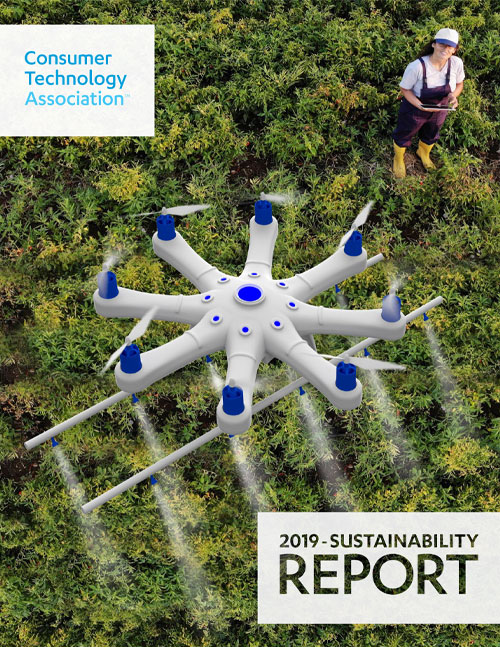Today’s Devices: Smaller,
Lighter and More Recyclable

For consumer technologies, sustainability today does not have to come at the cost of efficiency, price or performance. With the rise of artificial intelligence, advanced research and development, more collaboration with suppliers and big data analytics, technological devices are the lightest and the most efficient they have ever been. This journey begins at the design phase where designers, engineers and product developers come together to map outcomes and capabilities with materials management, performance, economics and sustainability principles.

Apple
Apple invented a new kind of alloy that would allow its MacBook to use 100% recycled aluminum enclosures. This new alloy could be recycled endlessly without losing the qualities that made it a better choice in the first place. Today, its MacBook Air and Mini have managed to cut each product’s carbon footprint by nearly half. Apple was also able to introduce recyclable components to its popular iPhones, with more than 40 components in the iPhone XS, iPhone XS Max and iPhone XR now made from recycled plastic.
Dell
For years a big part of the gap between intent and action on recycling has been the lack of a dependable and sizable recovery system, whereby consumers can easily recycle their electronics for technology manufacturers to reuse for new devices. Dell, which was the first PC manufacturer to establish a closed loop for recycling gold from e-waste back into new motherboards, announced in 2019 that it had recycled 100 million pounds of closed-loop plastics (those recovered from e-waste) to make new parts for new computers. Today, Dell uses these materials in more than 125 different products, including monitors, desktops and all-in-ones.
Canon
Canon, which opened its Canon Eco Technology Park in 2018 to focus on eliminating waste and maximizing resource efficiency, introduced the Canon Automated Recycling System for Toner Cartridges (CARS-T) in 2019, a process whereby used toner cartridges are crushed and the materials automatically separated for recycling of the main component, high-impact polystyrene (HIPS).


HP
HP also continued to make strides in shifting its portfolio toward more materials-efficient products, including reducing the weight of its HP 800 G5 notebook and moving to a primarily aluminum chassis. The Notebook maker was also able to introduce post-consumer recycled plastic content in its ProBook series (10%) and the HP Elite (8.5%) for the first time.
Samsung
Samsung reported having used 220,000 tons of recycled plastics since 2009 and has set new goals: to reach a cumulative total of 500,000 tons of recycled plastics used in products by 2030.
Google announced that all of its 2019 Nest products included some amount of recycled material, while the new Nest Mini speaker has a fabric top made entirely from old plastic bottles.


